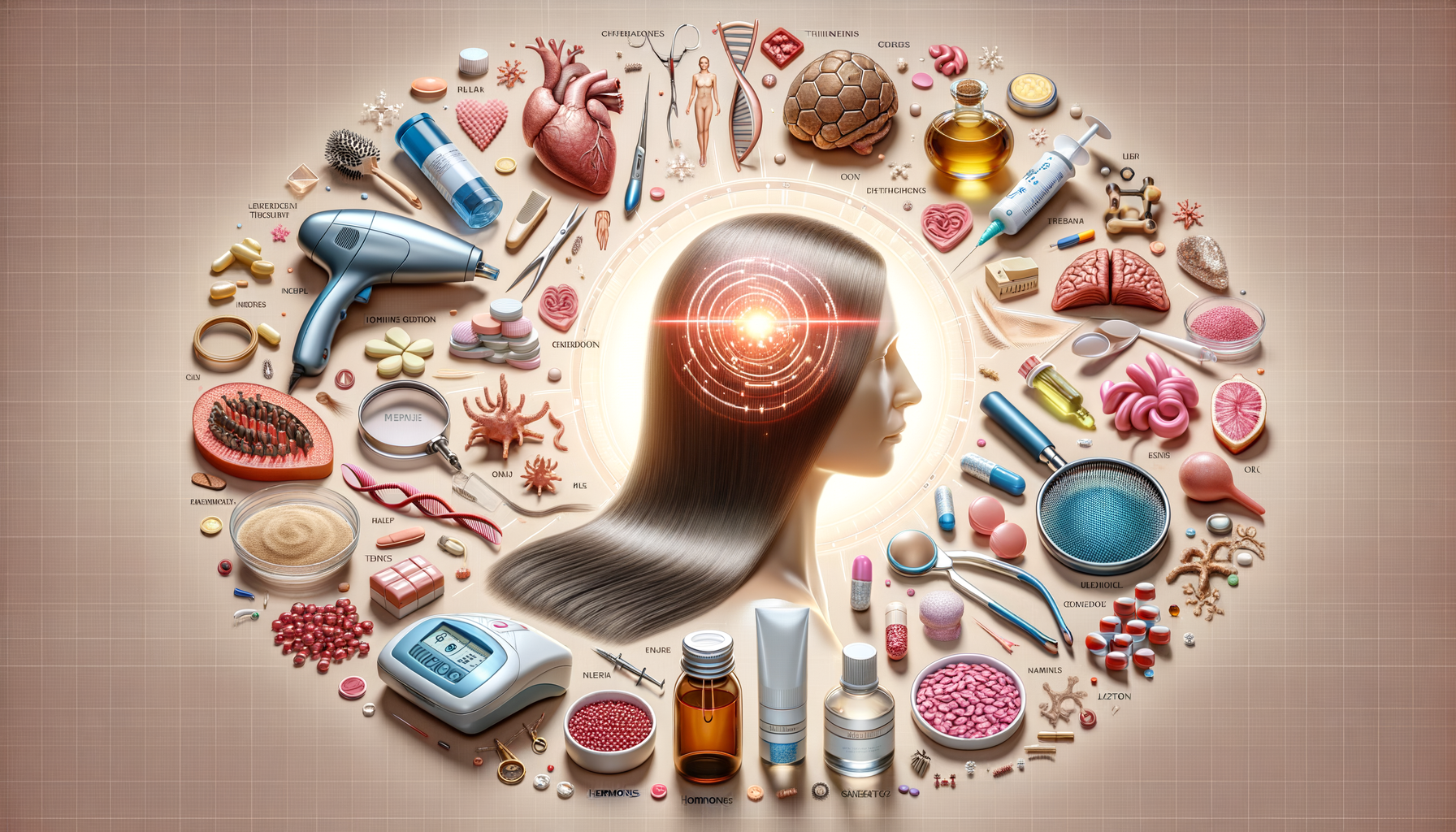
Hair Thinning in Women Over 40: Causes and Treatments That Actually Work
Understanding Hair Loss: A Natural Part of Aging
Hair loss is a common concern that affects many women as they age, particularly those over the age of 40. While it may be alarming, understanding that hair thinning is often a natural part of the aging process can provide some comfort. As women age, hormonal changes, particularly the decrease in estrogen levels, can lead to a noticeable thinning of hair. This hormonal shift affects the hair growth cycle, resulting in less frequent hair renewal.
Moreover, genetics play a significant role in hair loss. If there is a family history of hair thinning or baldness, it is more likely that one will experience similar issues. Other contributing factors include stress, nutritional deficiencies, and certain medical conditions such as thyroid disorders or autoimmune diseases.
Recognizing the signs of hair thinning early can help in managing the process more effectively. Signs include increased hair shedding, a widening part, and a decrease in hair volume. While these changes can be distressing, understanding the underlying causes is the first step towards finding effective solutions.
The Role of Hormones in Hair Thinning
Hormones significantly influence hair growth and loss. In women over 40, hormonal fluctuations become more pronounced, especially during menopause. The decline in estrogen and progesterone levels can lead to a reduction in hair density. These hormones are known to keep hair in the growing phase, so when their levels drop, hair growth slows down.
Additionally, an increase in androgens, or male hormones, can contribute to hair thinning. Androgens can shrink hair follicles, leading to hair loss on the scalp. This condition is known as androgenetic alopecia, a common cause of hair thinning in women.
Understanding the hormonal aspect of hair loss can guide women in seeking appropriate treatments. Hormone replacement therapy (HRT) may be considered for some, but it is essential to consult with a healthcare provider to weigh the benefits and risks. Natural supplements and lifestyle changes, such as stress management and a balanced diet, can also support hormonal balance and promote healthier hair growth.
Effective Treatments for Hair Thinning
When it comes to treating hair thinning, there are several options available that can help manage and improve the condition. Topical treatments, such as minoxidil, have been shown to stimulate hair growth and slow down hair loss. This over-the-counter medication is applied directly to the scalp and can be a practical solution for many women.
In addition to topical treatments, oral medications like spironolactone may be prescribed to address hormonal imbalances contributing to hair loss. This medication works by blocking androgens, thereby reducing their impact on hair follicles.
For those seeking non-pharmaceutical options, low-level laser therapy (LLLT) is a non-invasive treatment that uses light energy to stimulate hair growth. Various devices, such as laser combs or caps, are available for home use and have shown promising results in promoting hair density.
Choosing the right treatment often involves a combination of approaches tailored to individual needs. Consulting with a dermatologist or a trichologist can provide personalized guidance and help determine the most effective treatment plan.
Nutritional Support for Healthy Hair
Nutrition plays a crucial role in maintaining healthy hair. A balanced diet rich in essential vitamins and minerals can support hair health and potentially reduce hair thinning. Key nutrients include:
- Protein: Hair is primarily made up of protein, so adequate intake is essential for hair growth and repair.
- Iron: Iron deficiency can lead to hair loss, making it important to consume iron-rich foods like leafy greens, red meat, and lentils.
- Vitamin D: This vitamin is vital for hair follicle health, and a deficiency can contribute to hair thinning.
- Biotin: Also known as vitamin B7, biotin supports hair strength and growth.
Incorporating these nutrients through a well-rounded diet or supplements can enhance hair health. However, it is advisable to consult with a healthcare provider before starting any new supplement regimen to ensure it aligns with individual health needs.
Emotional and Psychological Impact of Hair Loss
Hair loss can have a significant emotional and psychological impact, affecting self-esteem and confidence. Many women find that hair is closely tied to their identity, and changes in appearance due to hair thinning can lead to feelings of vulnerability and self-consciousness.
It is important to acknowledge these feelings and seek support when needed. Joining support groups or speaking with a mental health professional can provide a safe space to express concerns and explore coping strategies.
Additionally, adopting a positive mindset and focusing on aspects of personal beauty beyond hair can help in building confidence. Embracing new hairstyles or accessories can also offer a fresh perspective and boost self-esteem. Remember, hair loss is a common experience, and seeking help is a proactive step towards managing its impact on daily life.